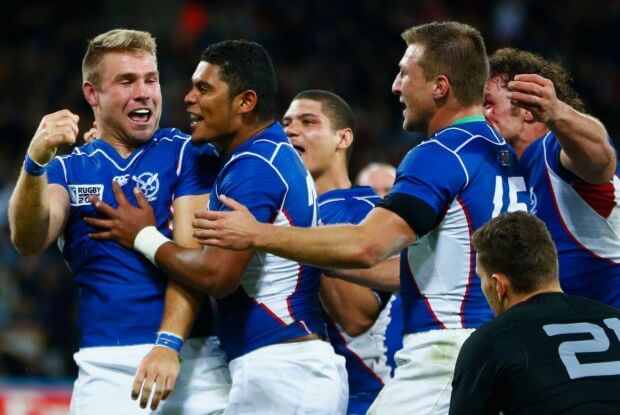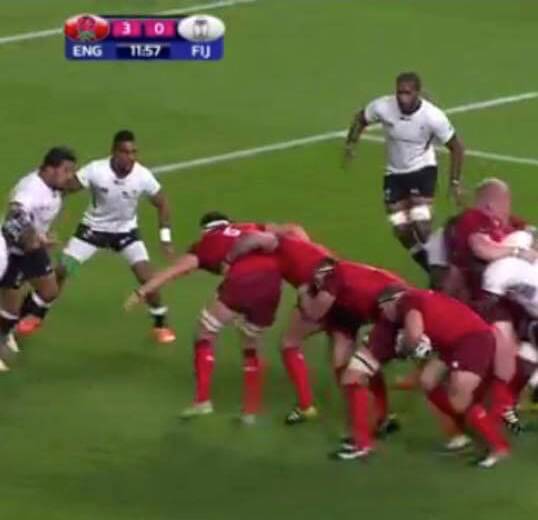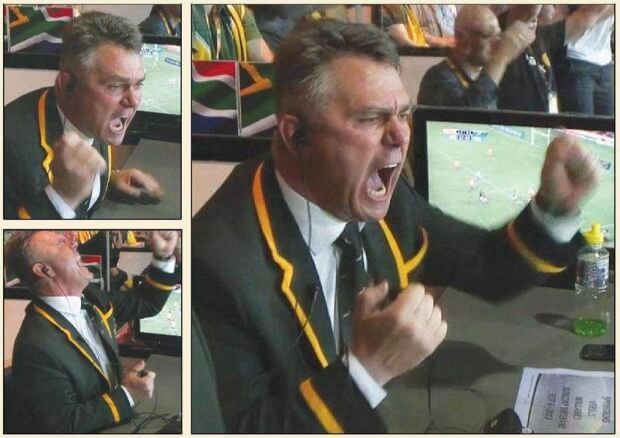So that’s week one of the 2015 RWC over. What have we learnt?
This RWC is going to be the best ever
Why, you ask? Just about every single stadium is full and the rugby is of a great standard – its not clear what the Brits have done but they’re filling it with colourful tourists and locals alike. They’ve also got a great mix of small, local grounds that are giving a wonderful atmosphere to those smaller matches. The nation seems to have really embraced the spirit and there is a buzz about this tournament. In addition, the standard of rugby continues to improve, but from more unlikely sources (see below).
The minnows are bridging the gap
Unlike in past RWCs, the minnows are no longer walkovers. In 2003, how could you forget the Wallabies beating Namibia 142-0 at the Adelaide Oval and 90-8 vs Romania. You could have been mistaken for thinking Matty Hayden was on strike at one end. This year, Romania held France to 38 and Namibia held the AB’s to 58-14. The highest margin has been 47 points (54-7) in the Wales v Uruguay match.

The other big improvers have been the US, Georgia and Japan who have made huge improvements, perhaps influenced by the inclusion in the Olympics and the greater opportunities for players in more global marketplace. Georgia beat the Tongans… and, did we miss anything else? Oh, Japan beat South Africa, and did it in style – a style that uniquely harnesses their strengths and avoids their clear issues with size.
Big stadiums aren’t always the way
This RWC is using the big stadiums well, for the big matches, but it’s the smaller matches that appear to be a revelation at this RWC. Scotland and Japan played at Kingsholm in Gloucester in front of 14,500, creating a great atmosphere and spectacle for both those at home and at the ground. Another case was in point was Georgia v Tonga, played in front of over 14,000 at the same ground – so it was no fluke.
And the best thing is that there is more of it to come – places like Elland Road in Leeds, and small grounds in Milton Keynes, Birmingham and Leicester are all due to host matches. Add in big football grounds like Wembley, St James Park, Manchester City Stadium and you get the feeling that this RWC is taking Rugby to every part of England and new supporters.
Rolling mauls and line-outs are the new black
If we could count them, we would, but lets just say, a LOT of tries were scored from rolling mauls and lineouts. Even the small Japanese are in on the act – what is great about the Japanese approach is how they have brought in the 15 man shove on regular occasions. Done quickly, they change the point of attack and then pile in with all players, appearing to nullify their size disadvantage. Just at 1999 was won with defence, and others with drop goals, could this be the RWC for rolling mauls? If so, the Wallabies seem to have picked up where the Brumbies left off, and looked good.
South Africa are no hope
Yes, Japan were good, but as Scotland highlighted, they’re still not a great team. All credit to the Japanese, they were great on the night but this shock loss has been coming for some time. In fact, it shouldn’t really come as a huge surprise – the Boks have also lost to Argentina, Wales and Ireland in the last 12 months. Now, of course these are higher ranked than Japan but there is a trend there, particularly when you throw in losses to the Wallabies and All Blacks. They say that the Boks are the hardest team to coach in World Rugby with politics, perhaps this has hampered their preparations.
Rugby is now truly global
If anyone ever thought that Rugby was the bastion of a few countries, think again. Some of the teams playing in this RWC are not from traditional sporting power houses – Namibia, Georgia, Tonga, Fiji, Argentina, even South Africa are not synonymous for their sporting prowess. That said, with little funding, many of the minnows now sport fully professional lineups thanks to the riches of Europe, relaxed Super Rugby rules, and probably the heightened focus on Rugby in the lead up to the Olympics.
In this increasingly global marketplace for talent, Rugby knows no bounds. There are Australians and Kiwis like Craig Wing and Michael Broadhurst playing for Japan as well as cross border flows between Fiji and Australia including Aussies Ben Volavola, Campese Maafu and Nemani Nadolo for Fiji and Fijians Henry Speight and Waisake Naholo playing for the Wallabies and AB’s respectively. Throw in Greg Petersen, former Waratah, now with the Glasgow Warriors who plays for the USA Eagles (he must rack up some frequent flyer miles), ‘French’ Rory Kockett and ‘Scottish’ Sean Maitland.
This won’t please the purists but it’s a great show of how global the game crosses borders.




